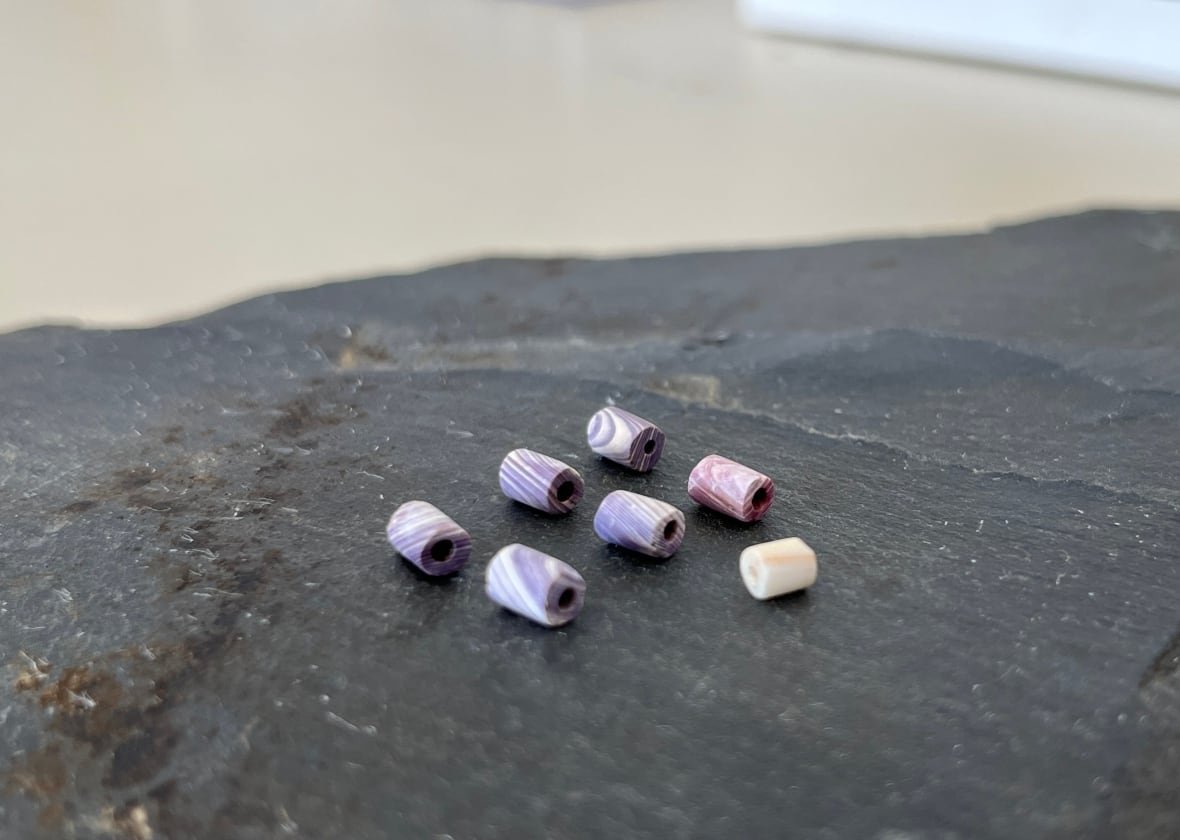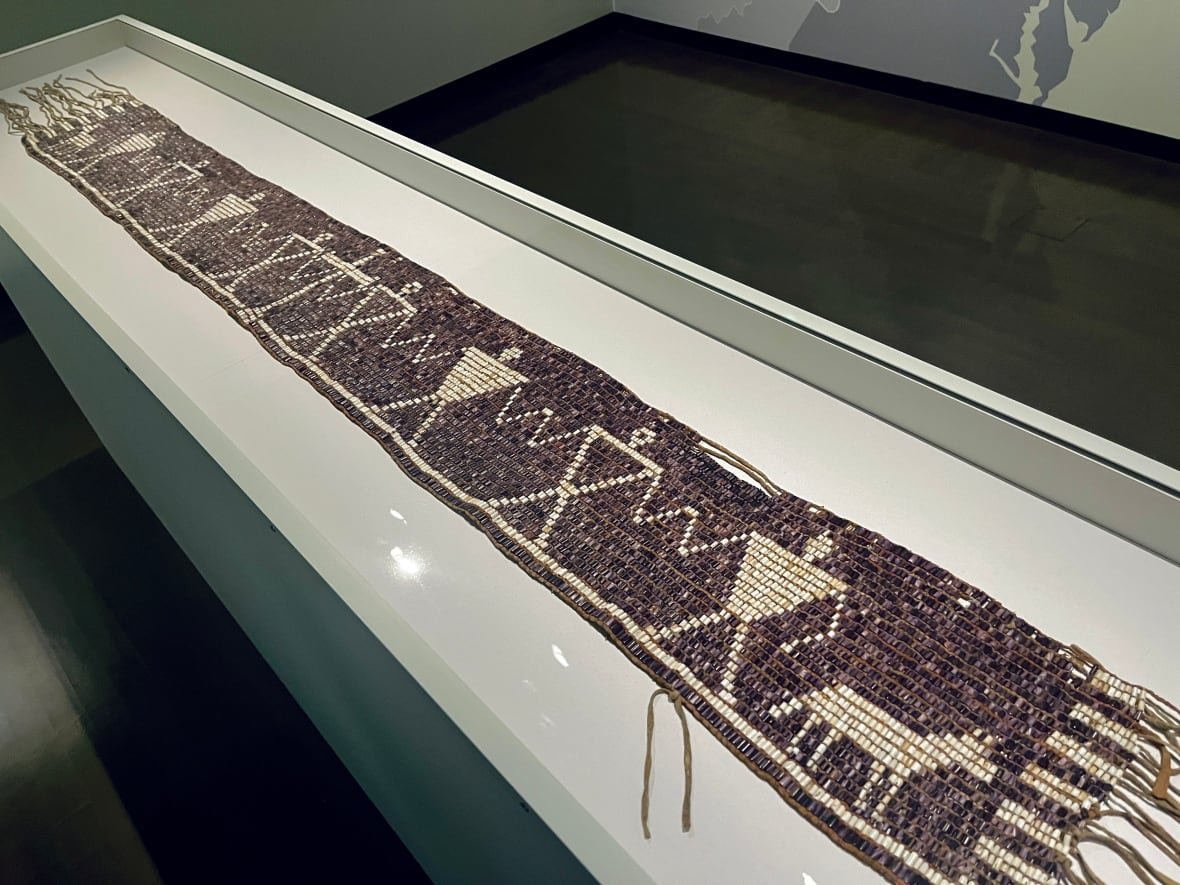
During the summer season, archaeologists made a significant find on Newfoundland’s eastern coast by unearthing what is believed to be the initial discovery of wampum beads in the province.
Calum Brydon, a graduate student in archaeology at Memorial University, stumbled upon seven beads while excavating at the Colony of Avalon in Ferryland, a historical site linked to the early Newfoundland governor Baron George Calvert of Baltimore.
Expressing his excitement, Brydon shared that initially, he was unsure of the significance of the find, as the shell beads did not immediately register their importance to him.
Wampum beads, crafted from quahog and whelk shells in white and purple colors, were traditionally used by Indigenous communities in northeastern North America for decorative and ceremonial purposes. They were also utilized as mnemonic devices in weaving belts to document traditions, historical events, diplomacy, and laws.

These beads served as a form of currency and were used in trade, indicating the likelihood of their presence at the Colony of Avalon through exchanges with English or Dutch merchants, according to Brydon.
Barry Gaulton, an archaeology professor at Memorial University’s St. John’s campus, highlighted the importance of the wampum discovery in enriching researchers’ insight into life at the 17th-century settlement, established as a sanctuary for Roman Catholics fleeing religious persecution in England.
Gaulton emphasized the extensive interactions of the people at Ferryland with various communities across North America and Europe, underscoring the symbolic significance of these artifacts in preserving those connections.
Since the commencement of excavations in 1992 through a collaborative research initiative, nearly two million artifacts have been uncovered at the site, including gold coins and a copper crucifix.
Gaulton noted the exceptional findings of this summer, unveiling unexpected artifacts like gaming pieces and structural remnants that reshaped the understanding of the colony’s layout and activities.
One of the notable discoveries in the cold storage area, where the wampum beads were found, included previously concealed walls


